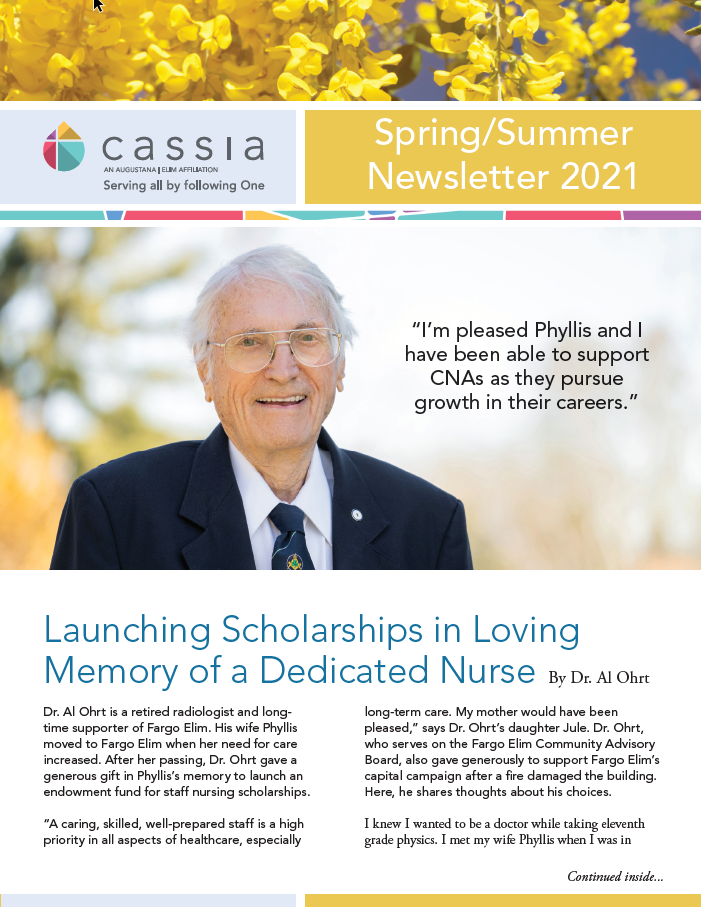Seth Horowitz in his book The Universal Sense uses his experience as an auditory neuroscientist to show the reader how sound plays a large role in our emotional lives, far greater than one may have thought. “Sound and the mind are very, very intricately linked, and yet we almost never pay attention. Everything you hear has some kind of impact on you and changes how you respond to the world.” He reveals that sound works underneath our cognitive radar. This research invites us to listen to the environments in which we live and work. Sound is a part of our work in elder services.
Findings of the early research from the 1980’s revealed that elderspeak was a part of the speech environment of institutionalized elders. Elderspeak is sometimes referred to as secondary baby talk. It is the sing-song language style that is usually punctuated by terms of endearment. The intention is usually to project caring and comfort. Later research revealed that this modified speech pattern truly has a negative effect on the individual. It erodes self-esteem and places a barrier between the speaker and speech receiver by creating a power differential. The speech receiver becomes the “needy one” and evokes a sense of pity rather than a sense of empathy. It is not difficult to picture how this would first be annoying, and to use Horowitz work, change how we respond to the world.
Researchers believe that elderspeak came out of child care and language development and has been inappropriately placed on elder care. Whether it preceded society’s ageist attitudes or was a result of them is a question yet to be answered. What is sure is that it re-enforces ageist stereotypes and harms the individual.
The irony is that users of elderspeak mean to be kind and caring. The good news is, the first step in eliminating elderspeak in our facilities is awareness. At Augustana Care Open Circle the staff talks about the language they use and how it sounds. They recognize that how we address an individual can make the difference between a positive and a negative interaction. We challenge each other to think about our own ageing process and recognize the difference between empathy and pity.
Our work is not done. One day while standing in line for coffee, a barista said, “What can I get for you young lady?” By no stretch of the imagination am I a young lady. I was officially on the receiving end of elderspeak. I could feel the separation between generations and the shift in the power relationship. Due to the length of the line and my desire for coffee I chose not to fight that little battle, just as other elders let it slip by. However, my goal of increasing awareness of elderspeak and its negative effects goes on.
Augustana Care Open Circle provides respite care for caregivers while helping people with changing physical, cognitive and/or social abilities to enjoy fulfilling lives. We offer three convenient locations throughout the Minneapolis and St. Paul metro area. Each of our locations offer programs, recreation, personal care, respite and social connections to individuals with memory loss or other emotional or physical needs. Contact one of our centers to learn more about how Augustana Care Open Circle can support care partners to find balance and meaning in a life touched by memory loss or other diagnosis.
The author, Patty Crawford, is the Center Manager at Open Circle of Apple Valley. She has been a part of Augustana Care for 41 years. Patty is also a sought after public speaker on subjects of ageing. She weaves her insight and research into meaningful presentations. Patty is a Master of Leadership graduate from Augsburg University.







